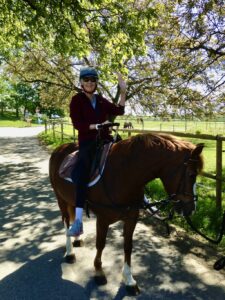 Just a few weeks after my brain trauma and surgery, my physical therapists in the rehab hospital, The Lavigny Institution, recommended a pony ride to help me heal. My entourage at home found that suggestion amusing as they pictured me on a pony with my long legs dragging the dirt.
Just a few weeks after my brain trauma and surgery, my physical therapists in the rehab hospital, The Lavigny Institution, recommended a pony ride to help me heal. My entourage at home found that suggestion amusing as they pictured me on a pony with my long legs dragging the dirt.
I was dumbfounded to find out my rehab center had its own stable, vineyard and farm. Dating back to 1906, over a century, a rich Pasteur in Vaud Canton Charles Subilia troubled by the death of an epileptic boy dedicated his fortune to creating an asylum for epileptics. The center now grown to over 900 employees specialized in treating epileptics and stroke victims comes as no surprise, but the fact they owned their own stable and offered hippo therapy seemed unbelievable.
Though the use of equine-assisted therapy (EAT) involve activities with horses to promote human physical and mental health after injury and illness has roots in antiquity, I had never heard of it.
“The movement of a horse side to side, forward to back hip rotations are what humans need to do when walking,” my PT explained. “Riding a horse helps promote that movement that we forget after brain accidents.”
The horse’s pelvis moves in the same three ways as a human pelvis does creating a movement pattern similar to human walking.
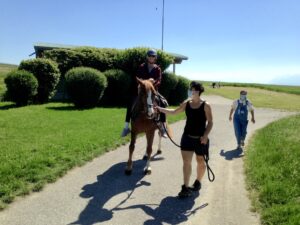 My physical therapists were so enthusiastic they could get me to agree to anything, but on the day I was scheduled for pony therapy I had second thoughts. Was I crazy? I hadn’t ridden a horse in over 50 years. But there was no way I could fall off. To mount the pony, which I was surprised to see had grown overnight to the size of a horse, I walked up a ramp and they brought the horse to a stand beside me.
My physical therapists were so enthusiastic they could get me to agree to anything, but on the day I was scheduled for pony therapy I had second thoughts. Was I crazy? I hadn’t ridden a horse in over 50 years. But there was no way I could fall off. To mount the pony, which I was surprised to see had grown overnight to the size of a horse, I walked up a ramp and they brought the horse to a stand beside me.
A stable girl with years of experience took the reins and led the horse down a country lanes. Therapists walked either side of me.
“Lean left , lean right, more hip movement, less upper body, pull back upper shoulders, sit up straight in saddle,” Benoit instructed while I tried to let my body sway into the horse’s natural rhythm . Benoit modified the horse’s movement to promote specific responses within the me, while he simultaneously instructed a fellow PT.
In addition to the physical contact with the animal, the horse also provided sensory input aiding my body’s ability to sense its location, movements, and actions in a continuous loop of feedback between sensory receptors throughout my body and my nervous system.
As I rode down the trail, my worries melted. My rigid, body melted into the movement of the horse while my mind blended into the healing atmosphere of nature. As wind washed over my face, golden fields of wheat undulated in the winds like a Hawaiians dancers hips swaying in grass skirts.
Lavender fields and cobalt blue ponds looked as vivid as a Van Gogh paintings. Baby goats rollicked at their mamas heels and cows, the color of toasted marshmallows, grazed in lush green valleys. The entire vista opened up to the majestic Lake Geneva surrounded by the imposing Alps, which looked like sea creatures rising up from the deep.
The feel of the breeze, the steady rocking of the horse and the mesmerizing view filled me profound peace allowing total liberation from my broken body and bruised mind and gave me hope.

“The Lavigny Institution supports each person as a whole: physical, psychic, intellectual, emotional and spiritual to develop autonomy and social relationships, as well as foster the development of the person.”
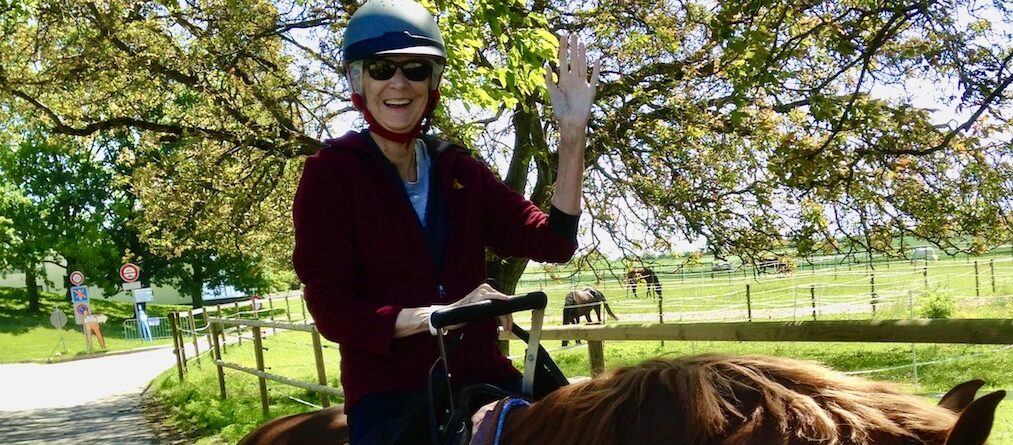




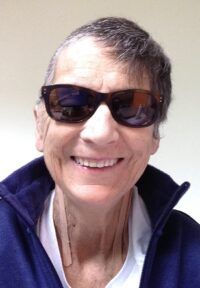
 I almost lost my life. Again.
I almost lost my life. Again.
 weeks I could not move from my bed. Then I was transferred to a rehab center and started round the clock therapy. My days were filled PT, OT, neuropsych, speech therapy. I met with physical therapists, neuropsychotherapists, a psychiatrist, and neurologists to piece together my psyche and help regain my physical and cognitive skills.
weeks I could not move from my bed. Then I was transferred to a rehab center and started round the clock therapy. My days were filled PT, OT, neuropsych, speech therapy. I met with physical therapists, neuropsychotherapists, a psychiatrist, and neurologists to piece together my psyche and help regain my physical and cognitive skills.

 After enduring winter’s fog obscuring our mountains, I rejoiced to see the sun rise over the Alps and Lake Geneva. Though daffodils dance with the promise of spring, people remain oppressed.
After enduring winter’s fog obscuring our mountains, I rejoiced to see the sun rise over the Alps and Lake Geneva. Though daffodils dance with the promise of spring, people remain oppressed.

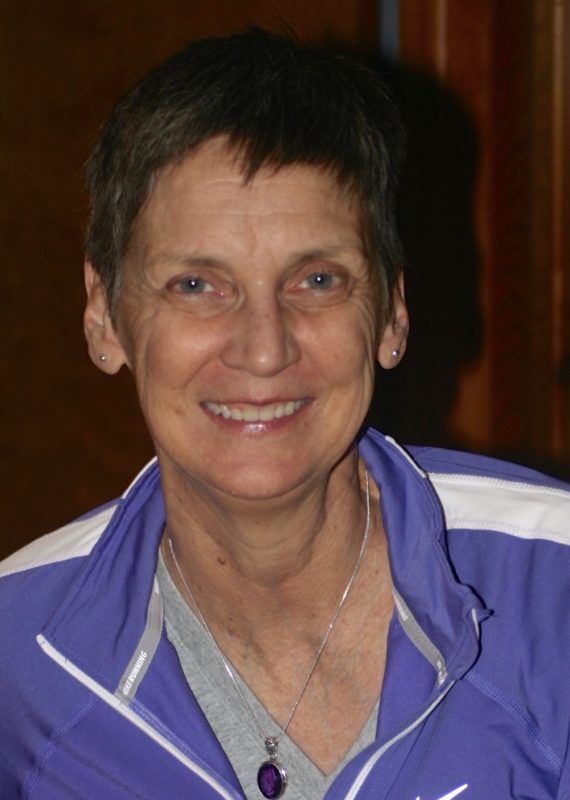
 As if sucking air through a straw, I gasp, my trachea burns, my lungs compress and I can’t breathe.
As if sucking air through a straw, I gasp, my trachea burns, my lungs compress and I can’t breathe.
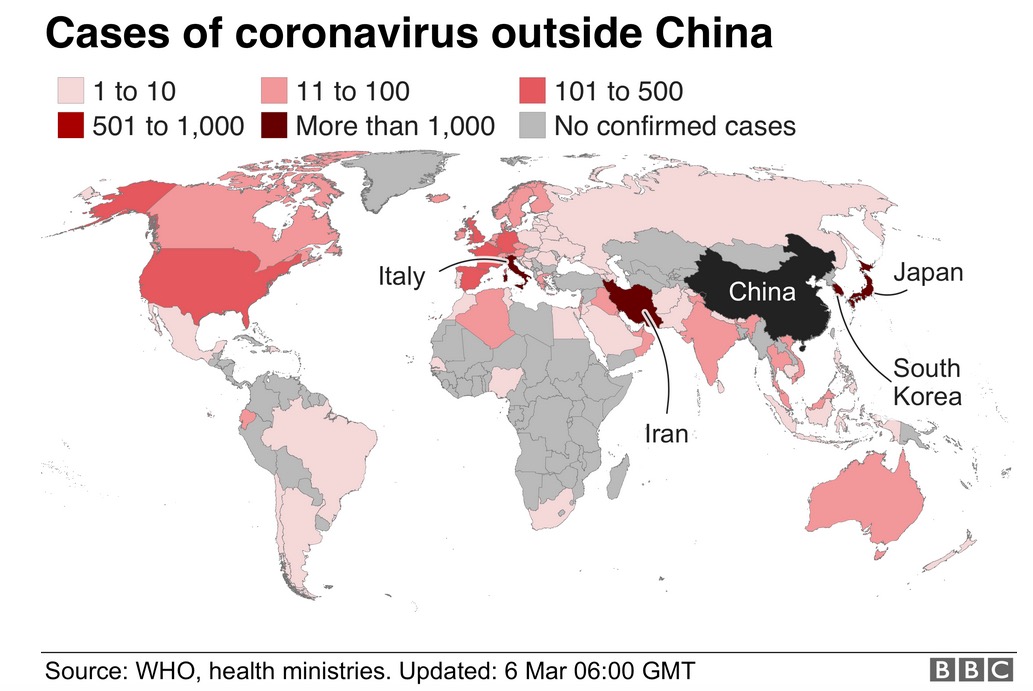
 In Switzerland when we first heard reports of the coronavirus in China, we only half listened, but when our neighbor Italy announced outbreaks, we were all ears.
In Switzerland when we first heard reports of the coronavirus in China, we only half listened, but when our neighbor Italy announced outbreaks, we were all ears.
 His book,
His book, 